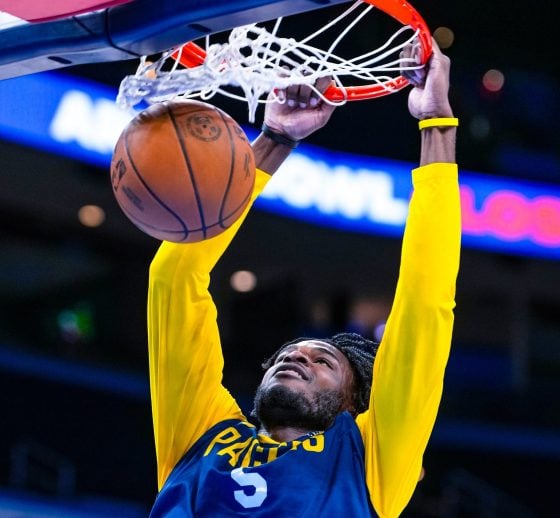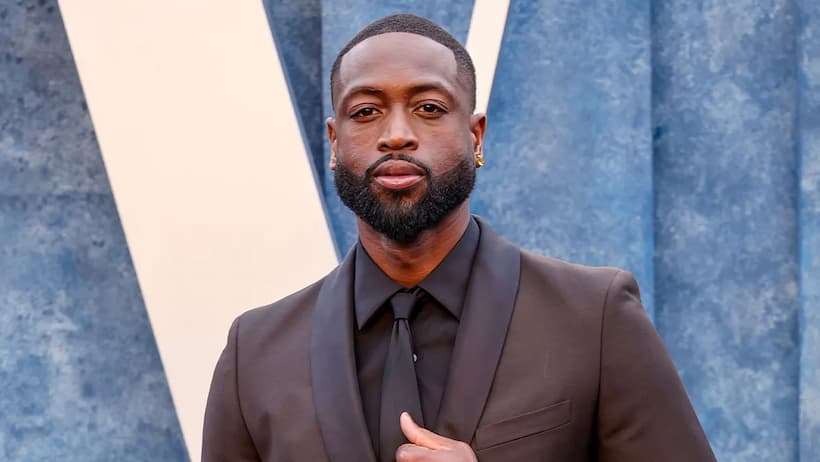“The energy is about to shift… all over the place.”
That’s what I imagine Jaylen Brown said with a little under eight minutes left in the game before executing what I can only describe as the “I’m not trying to rip your arm off… but I’m not overly upset if that ends up happening” move on Duncan Robinson.
I’m not an NBA referee, but I was shocked that Brown was only assessed for a Flagrant 1 rather than a Flagrant 2, which would have led to an ejection. I don’t think subjective-injury-risk is in the NBA handbook when figuring out the severity of a flagrant, but that was an extremely dangerous play and everyone was fortunate Robinson was able to do a few shoulder rolls and shake it off.
“He knew exactly what he was trying to do. Trying to get tangled up, etcetera because he didn’t want to play defense,” Brown said of the incident. “They called the foul, but he was still trying to hang on, and I was trying to get my arm free.”
This will come as an understandable explanation to anyone who’s ever done this exact move to their older brother and had to come up with an excuse for their mom as he writhes in pain on the ground. Brown “trying to free his arm” is not at all what happened, as there were several less-violent alternatives. That was a dirty play, and Brown was the one who knew what he was doing.
At that point, the Celtics were up a tepid nine points, with the Heat not officially staging a comeback but at least launching an exploratory committee to decide if they should. It had been an emotional day for them, having heard that Jimmy Butler would be away from the team indefinitely as he mourns the loss of a family member.
Already undermanned, the Heat then endured two very bad-looking injuries before Brown’s irresponsible flail. Former-Celtic Josh Richardson appeared to injure his shoulder fighting for a rebound with Jayson Tatum, immediately collapsing to the floor in what looked like excruciating pain. Later, the recently-acquired Terry Rozier injured his ankle by landing awkwardly after a foul.
It’s hard to quantify exactly how in-game injuries affect their team. Their teammates—suddenly concerned with the wellbeing of their compatriot—have to rapidly compartmentalize and lock right back in to try to win the game at hand. This leads to a huge range of outcomes, from both teams somehow having to play a whole game after Gordon Hayward suffered a horrific leg injury to when Stephen Curry looked like he was about to cry when Kevin Durant tore his Achilles in the NBA Finals against Toronto.
Whatever the reaction, injuries tend to divorce the rest of the game from the forces of logic and reason. When Tyrese Haliburton injured his hamstring against the Celtics in January, the rest of the Pacers began playing out of their minds, with Aaron Nesmith becoming Tracy McGrady for a solid hour.
A lot was probably going through the Heat players’ heads before the Brown erupted, but I’d imagine their perception that he was trying to injure another one of their teammates lit quite the fire under the Heat bench. It also handed them a crisp five points, with Robinson converting both free throws and Bam Adebayo muscling in a three-point play right after.
Suddenly the tepid nine-point lead had shrunk to a sketchy four, with the energy of the game completely changed. Before the flagrant, the Heat looked like they were about three minutes away from giving up, unable to score in the half court and short three rotation players. Despite the lead, it felt like the Celtics were losing.
Perhaps it was because the Heat’s unique ability to flip negative scripts against their opponent regardless of talent disparity catapulted them all the way to the NBA Finals last year, producing one of the most traumatic individual stretches in Celtics fans’ recent memory. Perhaps I had seen the Celtics blow this exact game a million and one times last season, with the half-full Miami crowd roaring like it was Game 7 all over again, except at 2 pm on a Sunday for whatever reason.
In some perverse way, the Celtics were on trial to see if they could close this one out. The Heat had identified the path that led to a win, and were banging on that door like the Visigoths about to sack Rome. The Celtics had to figure out a way to hold the line, something they couldn’t do last May.
Step one was to play to their advantage, which Sunday afternoon was just a big neon sign that read “KRISTAPS PORZINGIS” in all capital letters. The Heat had been completely unable to handle him in the first half, with their only real defensive answer in Adebayo still down six inches on the big man.
Porzingis had an efficient and effective first half, but also showed his maturity in immediately identifying a mismatch and setting up a post seal as soon as possible, not allowing the Heat to run any interference. By the second half, they were forced to play way off of him and overcommit to deny post position.
Facing a furious Heat rally, Porzingis exploited that advantage and strapped a three to extend the lead back up to seven. The Celtics went right back to him after Adebayo fired back, with Porzingis getting a great look at the rim but smoking a layup he should have converted. It was a tough miss, but the Celtics were generating quality looks when push was coming to shove them off a cliff.
Then came another very confusing stretch from Brown, where he played elite defense on Adebayo and went right back at Robinson in the triple threat, rightly assuming that his defender would be sufficiently angry to get right up in his grill, with Brown drawing a crafty foul. But then he missed both free throws… and then traveled the next trip down the court. It’s a give and take, I guess.
What was clear, however, was that the Celtics had identified another massive advantage in their closing group: getting Brown and Jayson Tatum switched onto Robinson or Tyler Herro and letting it all work from there. As soon as they got that switch, the Heat defense became a jenga tower standing on a single block. Herro and Robinson would get unceremoniously moved out of the way if left on an island, so the Heat would immediately bring a double team. That left whole sides of the court—much like our jenga tower—totally unbalanced.
None of that is exactly rocket science, but the Celtics’ late game decision-making has been suspect at times this season, often resorting to contested threes or tough fadeaways when trying to close. But Sunday, as the Heat tried to break down the door, the Celtics pushed back, repeatedly forcing them into impossible defensive situations, forcing fouls and creating good shots.
At the end of the day, the Celtics had identified two advantages and dropped a cinder block on the gas pedal. All that was left was to not screw up and win 50-50 plays, which Brown heroically did by hitting a three from the right wing and keeping his foot inbounds on a clutch offensive rebound that sealed the game. The energy did, in fact, shift all over the place.
There is a very reasonable chance that the Celtics and Heat meet in the first round of the NBA Playoffs, which would doubtlessly take years off my life and result in several extremely overdramatic columns from yours truly about losing faith in the universe. But the Celtics are 3-0 against them so far this year, and each time have found real blueprints to beat them. For now, everyone just cross your fingers.






